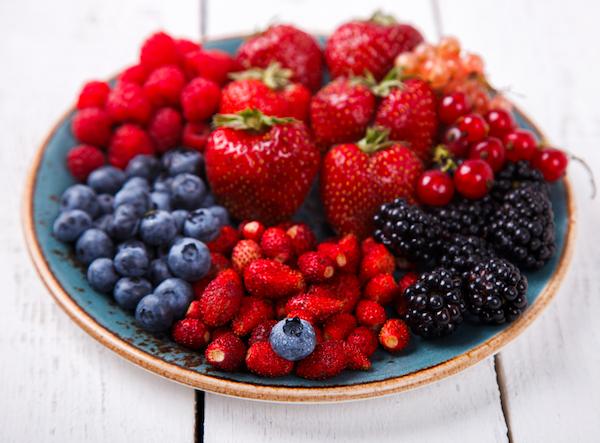Berries have carved a well-deserved reputation as some of the healthiest fruits you can eat. These bite-sized bunches contain disease-fighting antioxidants and are packed with essential vitamins and minerals. Beyond their enviable nutrient density, berries also have short growing seasons, so it’s vital to make the most of their availability through smart selection, storage, and usage.
Introduction to berries and health
Popular edible berries include favorites like blueberries, raspberries, strawberries, and blackberries along with more exotic varieties like acai berries, goji berries, and elderberries. Each type possesses its own unique nutritional superpowers ranging from anti-inflammatory properties to glowing skin perks and immune-boosting traits.
Powering many of these health perks are vital antioxidants that Healthiest Berries contain in abundance. These antioxidants counter damaging oxidative stress linked with chronic diseases and also have anti-aging effects. While all fruits have nutritional virtues, berries specifically pack a powerhouse of goodness relative to their size.
Ranking the top 5 healthiest berries
All berries are standouts, but if you want to choose the absolute cream of the crop in terms of health perks, look no further than:
Goji berries
Lauded as a superfood, these chewy red berries native to Asia contain high amounts of zeaxanthin that defends eyesight, iron for healthy blood, and polysaccharides that help modulate the immune system. Enjoy them dried like raisins or raw.
Blueberries
Tiny blue dynamos, a handful of blueberries, carries immunities benefits along with anti-aging effects linked to compounds called pterostilbene that regulate genes expressing youth, vitality and longevity. (Frozen ones retain their antioxidants!)
Blackberries
Cardiovascular health and diabetes prevention benefits shine in the deep purple hues of blackberries thanks to high reserves of anthocyanins, an antioxidant pigment also lending the berries their rich color.
Raspberries
The flavonoid antioxidant compounds called ellagitannins are exceptionally abundant in raspberries, lending the berries their metabolic, artery and even chemopreventive benefits that defend against various cancers.
Strawberries
Vitamin C and unique nitrate levels make strawberries stand apart. The former aids iron absorption for healthy red blood cell production while the latter stimulates nitric oxide generation, opening up blood vessels for better circulation.
Benefits of choosing organic berries
While all berries are fundamentally healthy fare compared to other snack options, choosing organic berries whenever possible is ideal to maximize nutritional quality and minimize toxic chemical exposure from pesticides and herbicides used in conventional farming:
Higher nutrients
Multiple studies affirm substantially higher antioxidant levels in organically grown berries on average compared to conventionally farmed ones. This includes heightened amounts of nutritious compounds like ascorbic acid, phenolics, anthocyanins and flavonols.
Avoiding pesticides
A thin edible skin and surface residues makes berries disproportionally prone to retaining high pesticide contamination versus other produce. By selecting certified organic, harmful exposures to chemicals linked with neurotoxicity, cancers and developmental issues can be significantly curtailed.
Ways to add more berries to your diet
Beyond just handheld snacking, integrating more berries into your regular dietary rotation is wonderfully easy thanks to their versatile sweet-tart taste pairing perfectly alongside multiple dishes and drinks:
Yogurt parfaits
Mixed into non-fat Greek yogurt with some toasted nuts or seeds creates a protein-rich anytime breakfast or dessert.
Oatmeal and smoothies
Adding a handful of berries amps nutrition and flavor beautifully in morning oatmeal bowls and breakfast smoothies.
Fresh snacks
Because berries don’t last long once picked, having a stock of pre-washed ready-to-eat portions makes for easy, nutritious snacks throughout busy days.
Uses in recipes
Every kind of baked good from waffles to pies and tarts welcomes berries. Savory options like salads also benefit from their juicy pop of flavor.
Buying and storing tips
Since berries are highly perishable, exercising care in choosing, transporting and storing is essential to fully extract their delicate flavors, textures and nutrients before inevitable spoilage:
Selecting ripe, mold-free berries
Inspect for uniform coloration and an undamaged surface free of leaks, odd markings or visible mold growth when buying berries. Overly firm or mushy ones are equally undesirable.
Quick refrigeration after purchase
Berries start deteriorating the moment they are picked, so refrigerate them immediately upon arriving home from the grocery store to maximize longevity. Waiting invites rapid mold spread.
Washing before eating
A quick wash in cool water is prudent before eating to remove residues which maybe chemical or bacterial contamination sources. Pat dry using paper towels.
Conclusion
Adding antioxidant and phytonutrient-dense berries to one’s diet, whether occasionally as a treat or routinely, remains hands down one of the tastiest tactics for bolstering health and protecting against chronic illnesses in deliciously indulgent ways. Choosing organic is best when possible. Beyond standalone snacking, incorporating berries into diverse recipes allows extracting their short-lived flavors and nutrients to the fullest over their fleeting seasonal availability. Keep a strategically planned and refreshed stash of prepped berries always on hand for easy, spontaneous usage when cravings strike.
FAQs
Do frozen berries have equal nutrients?
Yes, studies confirm freezing berries properly retains nearly equivalent anti-oxidants, vitamins and minerals as fresh for longer shelf life after thawing.
Can I take berry supplements instead?
While supplements provide concentrated compounds, whole food sources like actual berries tend to deliver superior absorption and synergy between myriad nutrients naturally working in harmony.
Which berry is lowest in sugar?
With around 5 grams of (natural fruit) sugar per cup, strawberries and blackberries are relatively lower in sugar compared to other berries. But the fiber content helps mitigate glycemic impact.
Are berries good for weight loss?
High water and fiber paired with low caloric density makes berries ideal snacks for reducing hunger while staying satisfied on fewer daily calories required for shedding pounds.
What is unique about acai berries?
This Brazilian berry contains exceptionally high antioxidant levels, among the most potent of any food. But fresh acai berries spoil rapidly after harvest, so frozen packs provide more reliable access to nutrients.

